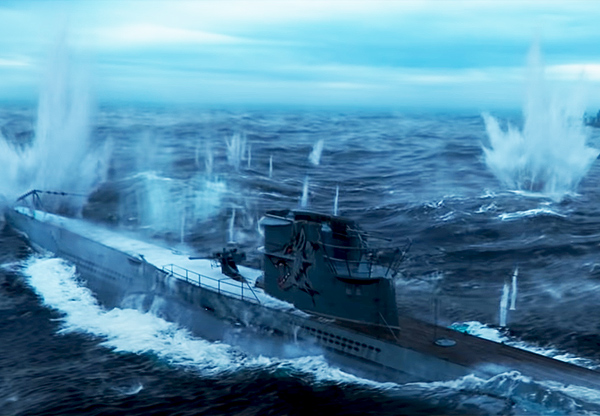Greyhound – Living room popcorn just isn’t the same.
Prior to the Covid-19 pandemic, Amazon and Netflix were making attempts to cut into the theater business with direct-release original movies on their streaming services. For the most part, those films consisted of two types of movies – award bait and toilet residue. Trying to compete with the medium and large budget theater releases was going very poorly for them. Then, Covid struck, theaters closed, and nearly all of those larger-budget movies were delayed. Suddenly, Amazon and Netflix were primed to make a real dent in the theater business model of movies. At the same time, other nascent streaming services went from the fringes to the spotlight, practically overnight. Apple, Hulu, and especially Disney were handed audiences desperate for new films. While it’s too early to predict how the different services will fare in this new model, it’s clear that the model is undergoing a fundamental change.
I have always believed that the only movies worth seeing in the theaters are comedies, horror flicks, and big, loud blockbusters. The first two genres are purely for audience reasons; they are much more fun to watch as a group than to watch alone. Laughter and scares are contagious. Doing either of those along with a hundred other people makes you feel like you are part of the group; that you are in on the experience. And, of course, blockbusters. Unless your name is Bezos or Gates, you do not have a home theater that can hold a candle to a real theater in the tech department. You want that giant picture and sound. You need that giant picture and sound. Michael Bay will make sure you get what you paid for.

Which is where a movie like Greyhound comes in. Greyhound is a World War II movie that immerses us in the harrowing journey of a convoy of supply ships trying to cross the Atlantic Ocean without being sunk by German submarines. Greyhound is the call sign of the U.S. Navy destroyer tasked with escorting and protecting the convoy (along with a Canadian corvette, Polish destroyer, and British destroyer). Captain Ernest Krause (Tom Hanks) commands Greyhound and the entire convoy. Like some recent WWII films (Fury, Dunkirk, Midway), the sole purpose of the movie is to put the viewer into the experience, in this case the bridge of a destroyer, with no fluff (looking at you Pearl Harbor). This is a movie meant to be seen on a sixty-foot screen and heard by astronauts on the space station.
The entire film takes place on the Greyhound, with occasional shots of other convoy ships, explosions, and submarines, always from the vantage point of the Greyhound. It is a beautifully shot film, capturing the dreariness of the North Atlantic, the horrors of naval warfare, and the tension of the crew wondering if the next attack will be their last. Tom Hanks is fantastic as Captain Krause, a commander on his first mission during the war. Krause is constantly on edge, calculating his next move, pondering his next order, always hoping not to make that fatal mistake that dooms them all. In fact, he is so anxious he barely sleeps or eats for the three days of the journey where they have no air cover and are constantly harassed and attacked by the Germans.

And the sound is as good as the visuals. Unlike many action flicks, most of the battle scenes dispense with the music to allow the audience to hear the sounds of the ship, the sounds of the ocean, and the sounds of battle. From the window wipers on the bridge to the ping of the radar to the groaning of steel straining against the waves, everything we hear maintains and even raises the tension throughout the film. When Krause winces at his bloody feet, we feel it with him. When the men suffer losses, we suffer with them.
Or, we would have if Greyhound was a movie we watched in theaters rather than from our couches, streaming exclusively on Apple TV Plus. While still an excellent movie to watch anywhere, much is lost in the downsizing to a TV measured in inches and a sound system that Marty McFly would scoff at.
The question now is will this be the new normal when we finally get past Covid? That is still several months away, giving people plenty of time to get accustomed to watching new movies from the convenience of their living rooms. Gigantic blockbusters are not going to go away, but are studios going to continue spending north of $200 million on a Godzilla shrunken down to size? And what about those comedies and horror movies that rely on the collective live experience and word-of-mouth popularity? Most importantly, who wants to subscribe to eighteen different streaming services, just to make sure they have access to all the new movies? I can live in a world where Amazon, Netflix, and Apple TV augment the movie industry, but not one where they are the movie industry.
Rating: While I try to figure out how to tweak my rating system for a theater-less world, pretend you did see this movie in theaters and don’t ask for any money back.